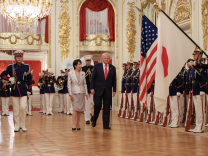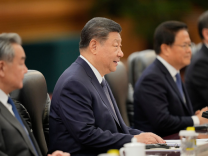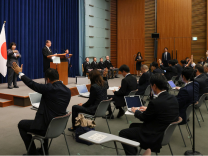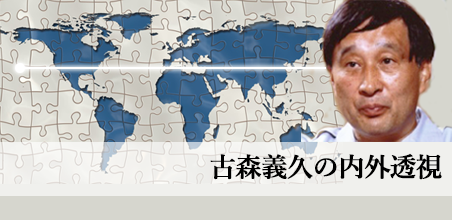[George Hara]FCCJ “Asa-kai” Report, May 13th, 2014
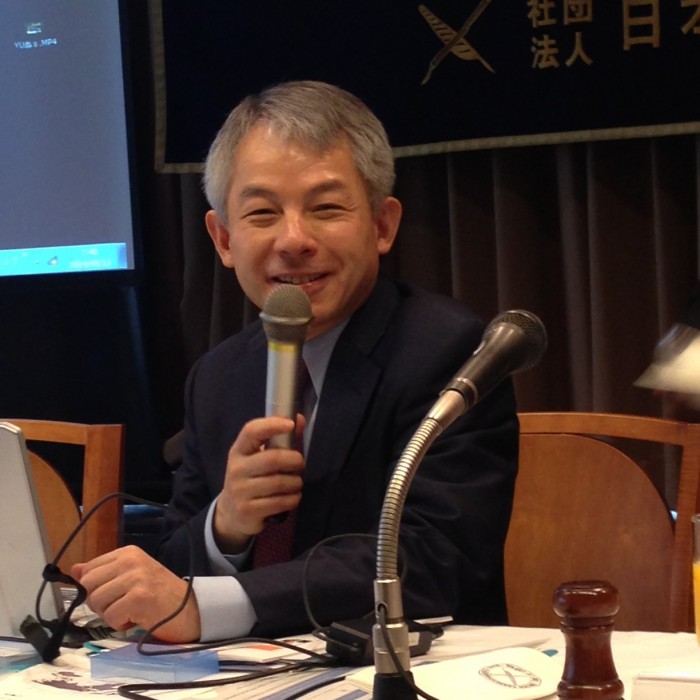
Mika Nakanishi (Japan In-Depth)
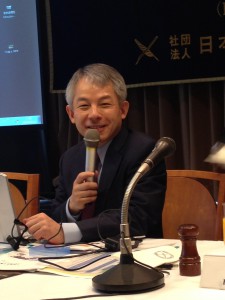 Today’s guest speaker at “Asa-kai”, a conference held monthly at the Foreign Correspondents’ Club of Japan (FCCJ), was Mr. George Hara, a passionate excavator. Whether it’s unearthing artifacts in Central America, gathering vintage model trains for his museum (the largest model train museum in the world!), or seeking prominent innovators to nurture, rare discoveries seem to propel Hara. The topic discussed today was titled: “Changing the World through Public Interest Capitalism and Revolutionary Technologies”.
Today’s guest speaker at “Asa-kai”, a conference held monthly at the Foreign Correspondents’ Club of Japan (FCCJ), was Mr. George Hara, a passionate excavator. Whether it’s unearthing artifacts in Central America, gathering vintage model trains for his museum (the largest model train museum in the world!), or seeking prominent innovators to nurture, rare discoveries seem to propel Hara. The topic discussed today was titled: “Changing the World through Public Interest Capitalism and Revolutionary Technologies”.
Hara started off the conference by giving us a brief look into his past, mainly pointing out the highlights of his various encounters that influenced his endeavors. Starting out with his archaeology studies across Central America to his graduate student days at Stanford University, he soon became fascinated with the then still new and emerging world of IT, and the innovative minds of Silicon Valley.
While continuing his studies in archaeology and biochemistry, the ever-curious Hara ran out of money and needed to come up with ways to earn a living, and continue to support his studies. He hoped to someday start his own enterprise, and not to work for one. Eventually, with the influence and knowledge he gained through his surrounding environment in advanced technology and IT, he soon settled on the idea of investing in the development and enhancement of revolutionary technologies.
Hara’s venture investment strategy lies in the notion of Public Interest Capitalism, a “new model of economy” (1). Public Interest Capitalism promotes the growth of corporations beneficial to society, yet at the same time, takes advantage of “the profit-hungry nature in our greed-based economy” (2). The focus of this notion is to nurture the industry and attain balance and improvement in living standards, replacing “the current one of extreme shareholder capitalism” (3).
DEFTA Partners, which Hara is CEO and Group Chairman of, supports the growth of the next generation industries in the post-computer era, the future in PUC (Pervasive Ubiquitous Communication) platforms. They also strive to open doors for emerging enterprises through funding and careful guidance.
Hara touched on the topic of “microfinance”, a source of financial services founded in Bangladesh. Microfinance provides support, as its aim is to fund those who seek innovation and possess great potential, yet lack the sources and finances needed in order to advance.
Another concern Hara had was the lack of attention to societies in developing countries such as in Bangladesh, where the population is extremely high but educational and healthcare resources are frighteningly scarce.
His company, DEFTA, collaborating with BRAC, (Bangladesh Rural Advancement Committee), a local NGO group he came across in Bangladesh, established a for-profit organization called “bracNet”, a broadband internet service provider. The hybrid corporate model was deemed successful. Profits after taxes were divided with the shareholders of DEFTA, with a ratio set at 60% and BRAC`s by 40%.
BRAC was then able to utilize the profit toward education and healthcare purposes. Later, bracNet entered a partnership with KDDI which reduced BRAC`s share to 20%, whilst the merger was a huge step towards introducing Public Interest Capitalism’s potentials to the world.
Hara and his team are also implementing microfinance in African nations. Economy has always been a critical issue in Africa but there is also the concern for severe malnutrition. The UN has been active in implementing “school feeding”, and providing nutrition to African citizens. However, he disliked the idea of “artificial nutrition”. He feels citizens need to get accustomed to feeding themselves, to “do it yourself”, and not to always be on the receiving end.
After researching on what can be done to solve this problem, they came across a microalgae called Spirulina, which can be cultivated in Africa. The spiral shaped Spirulina originated in Africa and is very rich in protein, more so than beef. Hara claims although the African people knew how to cultivate and feed themselves, soon after the nations were colonized, they forgot or were denied cultivation on their own.
With the hope of wanting the African people to get back to their roots and eventually stop relying on aid from outside, in 2007, Hara`s team started the Spirulina project. This year, it will be the first time to actually experiment its use with the citizens in Zambia. Hara sounded cheerful and excited about the project, as he has high hopes that this will be another door that opens the world to more revolutionary changes in the years to come.
Mr. George Hara is Chairman and CEO of DEFTA Partners, Chairman of the Alliance Forum Foundation and Special Advisor to the Cabinet Office of Japanese Prime Minister Abe. Hara is also an archaeologist and a UN diplomat.
**Excerpts taken from “Public Interest Capitalism & Asian Economy” by George Hara.
(1), (2), (3) all taken from page 2.
【Recommended for You】
- Browsing through a Medical Tour in the Netherlands[Healthcare Tour in the Netherlands (Part.1)]Sharing global knowledge to solve the world’s problems(Hiroyuki ABE・journalist)
- Reporting from a comprehensive Healthcare Tour under the invitation of the Netherlands’ Ministry of Health, Welfare and Sport[Healthcare Tour in the Netherlands (Part.2)](Hiroyuki ABE・journalist)
- Healthcare cost Reduction Attempts by Industrial-Academic-Government Cooperation built New Business Models[Healthcare Tour in the Netherlands (Part.3)](Hiroyuki ABE・journalist)
- A Tour to grasp the Healthcare situation of the Netherlands[Healthcare Tour in the Netherlands (Part.4)](Hiroyuki ABE・journalist)
- “Happiness” from Harajuku to the World! – An encounter with the man behind this world-spread video –(Aya・Writer)













